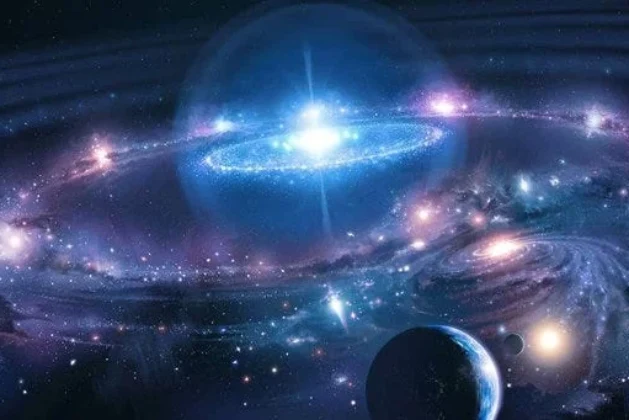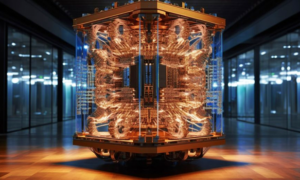
It really depends on how you define discover in this context.
This is possible in less than 200 years due to one invention; Advanced Quantum Computers.
Humans will be able to see our observable universe through simulations inside highly advanced quantum computers that will allow us to see and observe planets within our galaxy and nearby galaxies in clear-detail with close accuracy to real-time.

This technology would allow us to capture light coming in from distant planets and it will base its own perception off of acquired knowledge in database and mapping of observable universe. It will be able to tell based off of how planets give off their light spectrum and predict with near 95-98% accuracy (planets less than 400,000 light years from Earth) of what elements, minerals, substances, and conditions it composes of. It will look and work like a hologram in which scientists would be able to read and change the properties inside the simulation by the use of their fingers.
It will also identify alien habitable worlds (exoplanets), what potential alien life form could look like if it exists within these planets based on its position to its nearby stars, size, distance, temperatures, real-time trajectory, and elemental properties as well as planets age. It will be able to see planets, stars, gas giants, black holes, and even the ones that we are not able to see clearly today and its movements. It will map out the observable universe in a clear detail from a quantum fundamental level with close accuracy of probability.

However, without the use of probability, It is impossible to discover our galaxy in real-time due to constraint of time and distance. The reason why is because you cannot exactly predict where the electron will be in one minute. You can only predict the probability of the electron being at various locations. Keep in mind that we can only calculate what a quantum object is most likely to do. Such is the nature of the quantum world. And since the entire universe is simply a collection of quantum objects, the universe itself cannot be exactly simulated.
Scientists say that they have already figured out a way to achieve quantum supremacy, meaning a machine that is able to run on physics of quantum mechanics. It can solve the most complex passwords in minutes whereas a classical supercomputer would take thousands of years to crack. It produces 200 quadrillion calculations per second with 250 petabytes of storage. The computing power is going to increase significantly every decade.
We would have also developed super advanced radar-telescope and satellites in the future decades that will help us identify most of the planets in our galaxy without physically traveling.

Australian scientists have already figured out a way to map millions of galaxies with new telescopes.
Every year, we are discovering thousands to million of planets in our galaxy.
Even with the best and most advanced telescopes in the world, we are bound to miss discovering a few planets in our galaxy because the light isn’t strong enough to reflect, the alignment trajectory of stars, and planets becoming overshadowed by other stars becomes a barrier in order for us to identify and discover them.
However, if your wondering how long it would take humanity to travel and discover each planet in our galaxy, I would say that it is almost practically impossible because the distances are far too vast in order to really discover each planets physically, much less planets in nearby galaxies. Our galaxy has about 400 billion planets. The only solution we could come up with, would be to, send space probes/machines/robots traveling closer to the speed of light disbursed throughout our galaxy and even then, it would take thousands of years to really discover each planet and transmit data back to Earth. This is almost likely impossible.
Could scientists perfectly simulate the entire universe in a computer, down to the last atom?


